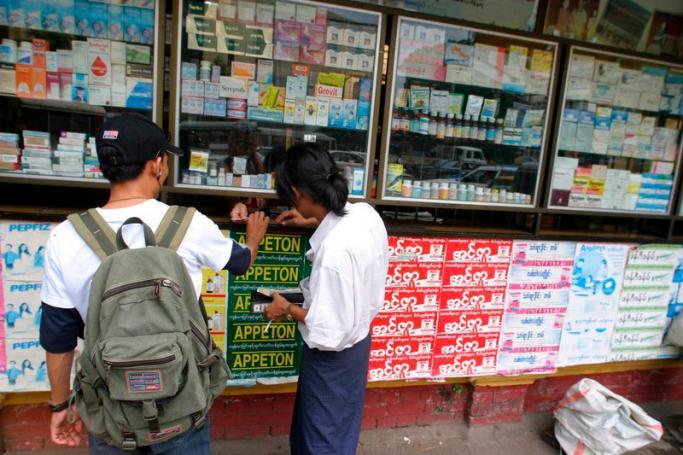The depreciating value of the Myanmar currency, the Kyat has led to rising commodity prices and increasing medication costs due to the need to import medicines from abroad, burdening the people of Myanmar.
Working class people in particular are having a hard time affording medicines due to the rising cost of healthcare.
A resident in Yangon said that people with diabetes have to take medicine and disease control treatment every day, and because of the increasing prices of medicines, they have to reduce their medicine consumption.
"My family members have diabetes and hypertension, conditions that require ongoing medication. In the past, they used to take medicine regularly 2 or 3 times a day. However, with the prices having increased 3 or 4 times, they have been forced to reduce the frequency of the medication,” the Yangon resident said on the condition of anonymity.
"Given the present circumstances, in some cases, curing the disease is beyond our reach," he remarked. "There are times when we find ourselves anxiously monitoring the illness due to shortages of medication."
Local drug retailers reported that the prices of essential painkillers and common fever medications have risen, resulting in decreased sales. They noted that the increased drug prices have even led to the closure of some drug sales companies in recent days.
"Medicine sales are low. It's much lower than before. The price has jumped three, four or five times. The prices of basic drugs such as Decolgen and Biogesic have gone up. Working-class people suffered the worst. Some of them can't even buy the drugs prescribed by doctors, because they don't have enough money,” said a woman in Yangon.
Decolgen and Biogesic, well-known paracetamol brands in Myanmar, are primarily employed for alleviating mild to moderate pain, including headaches, backache, menstrual cramps, muscle strains, minor arthritis discomfort and toothache, and for reducing fevers associated with common illnesses like colds and the flu.
The volatility of the dollar exchange rate and the inconvenience of importing medicines from abroad have become pressing issues. Furthermore, the issuance of new Kyat 20,000 banknotes by the junta has worsened inflation.
The Myanmar Kyat has experienced a depreciation, falling from less than 1,400 Kyat per US dollar prior to the coup (before February 1, 2021) to approximately 3,400 Kyat per dollar by August of this year.
Since the military coup in 2021, Myanmar has witnessed a decline in its political, economic, and educational sectors, resulting in increased hardships for its citizens. The cost of goods has surged, leading to long queues at affordable outlets. People are increasingly concerned about the worsening impact on the grassroots and the growing crises they face daily.












